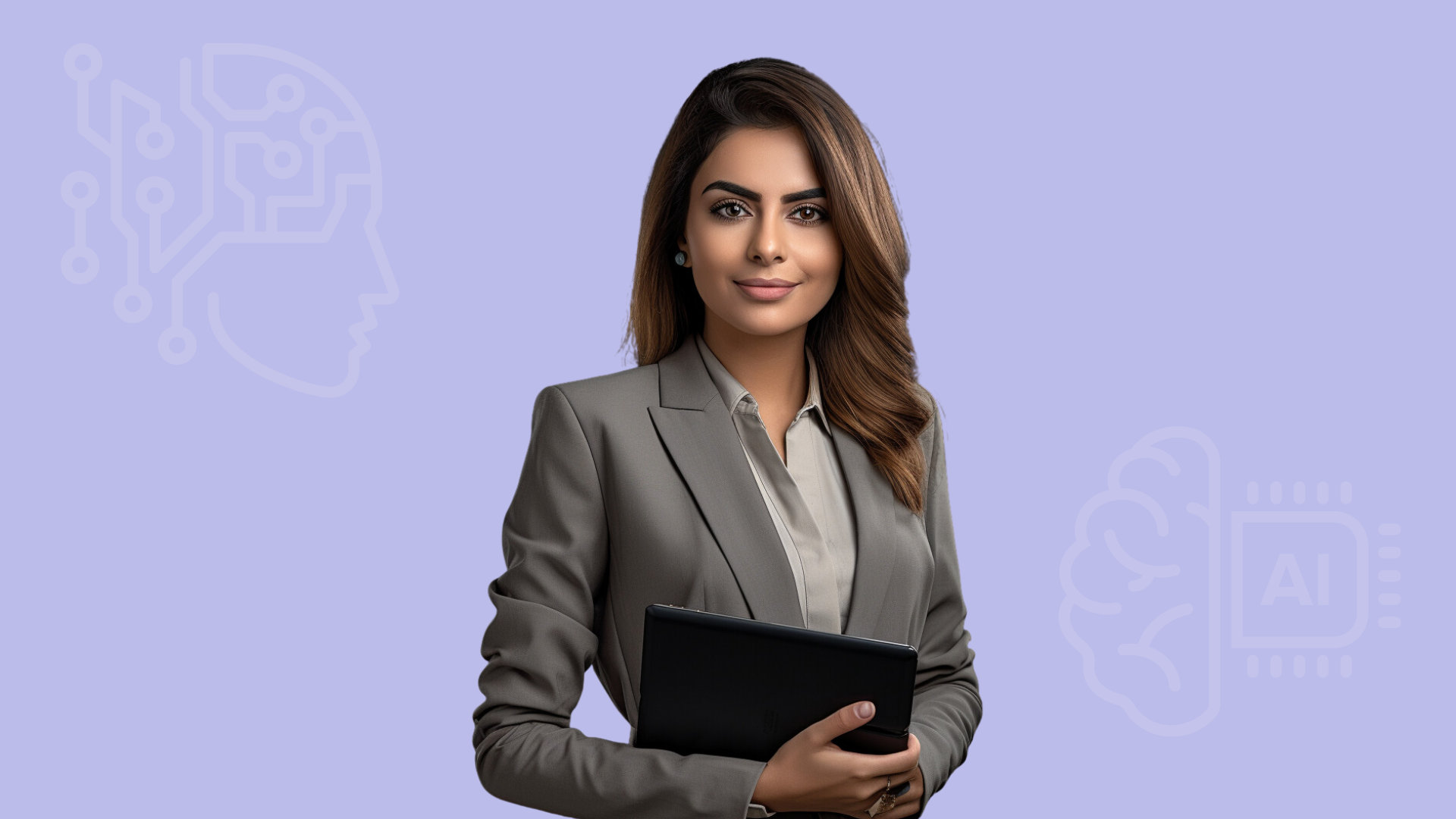
Imagine a world where every application receives an instant response, every employee benefits from training perfectly tailored to their aspirations, and the recruitment process is free from cognitive bias. This isn’t the distant vision of an utopian future; it's the potential application of artificial intelligence (AI) in human resources (HR).
In this scenario, human intelligence and technology converge, revolutionising HR processes and optimising recruitment and talent management.
Current HR challenges in the AI era
HR professionals find themselves at a critical juncture today. On one hand, there are time-tested traditional tools. On the other, a growing array of AI-based applications promises to revolutionise the way talent is analysed and managed. Yet questions persist: will AI replace HR? How can HR embrace AI without losing its human essence?
It is crucial to understand that AI is not intended to replace the human role, but to complement it. AI-based applications offer HR an invaluable opportunity to gain efficiency, accuracy and relevance. However, misuse can create a gap between HR professionals and candidates or employees. Technology has always been a catalyst for change in business, and AI is no different.
For HR, the introduction of AI presents a variety of challenges:
Humanisation vs Automation: How can HR skillfully combine the human experience with the power of technology? While AI can improve efficiency, it is crucial that HR processes remain human-centred.
Ethics and transparency: The use of data must comply with ethical and legal standards, guaranteeing data confidentiality and security.
Evolution of skills:: With AI assisting certain tasks, HR professionals should reorientate themselves towards more strategic skills, soft skills and cross-functional competencies.
Ultimately, the key lies in achieving a balance: using AI to improve processes, while keeping the human side at the heart of decision-making.
The benefits of AI in HR
AI offers several advantages that HR can harness to improve their processes:
Increased efficiency: : AI can swiftly process large amounts of data. For recruiters, this means faster CV screening and more accurate matching of candidates to job roles.
Predictive analysis: :Predictive algorithms can foresee employee departures, future skill requirements and predict candidate performance. Central Test's predictive model makes it possible to personalise the success criteria for a job role and determine, with a high degree of probability, a candidate's future performance and potential for progress.
Personalisation: Machine learning enables systems to adapt and offer tailored solutions to each employee, thus improving the overall employee experience.
Bias reduction: Properly programmed AI applications can minimise unconscious bias in recruitment and assessment processes.
Semantic analysis: By taking advantage of semantic analysis and NLP (Natural Language Processing) techniques, certain applications can estimate skills and levels of expertise via CVs, cover letters and video interviews, making it easier to match candidates with the most suitable job roles.
AI undeniably influences the future of HR. However, this future does not entail the disappearance of the human aspect of HR. On the contrary, AI is a tool that, when used judiciously, can empower HR professionals to create more effective and human-centred work environments.
It is essential for companies to invest not only in technology but also in training their teams to navigate this new ecosystem. Ultimately, it is the synergy between humans and machines that will define the success of these HR transformations.
To learn more about how AI will revolutionise HR, participate in our HR event and join webinars during our Innovation Weeks.





